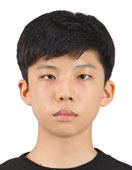![[Photo Credit to Pixabay]](https://cdn.heraldinsight.co.kr/news/photo/202403/3986_7862_719.jpg)
At the 2023 Im Young-woong concert, resold ticket prices exceeded 5,000,000 won and his agency had to ultimately cancel all suspicious bookings related to illegal transactions, while a fundamental solution to the ticket scalping dilemma still remains elusive.
According to Choi Jae-Ho, a Donga News reported, “A person identified as a scalper offered VIP tickets for the Sung Si-Kyung concert on an online community for prices ranging from 450,000 to 500,000 won each. The official price for these tickets was 154,000 won”
Consequently, popular musicians or artists in Korea face significant impacts due to the ticket scalping issue, leading them to unnecessary concert cancellations or the invalidations of all suspicious tickets that fans might have purchased legally, affecting both the sellers and consumers.
How did concert ticket prices surge to an astonishing figure of 5 million won?
The answer lies in the burgeoning popularity within the Korean music industry.
HYBE, a leading K-pop entertainment company, demonstrated a remarkable three-fold increase in global revenue, soaring from 3.666 trillion won in 2019 to over 11.812 trillion won in 2022.
Global streaming of K-pop has also shown a 42% increase compared to that of 2022.
With the sustained popularity and revenue generation of third-generation idols like BTS and BLACKPINK, coupled with the entrance of fourth-generation rookies such as Newjeans and Le Sserafim, the K-pop market is experiencing exponential growth.
As Korean idols garner global acclaim, musicians pursuing other genres like ballads and hip-hop are also gaining attention from international fans.
In fact, not only domestic fans but travelers visiting Korea also oftenly find tickets included in travel tour packages at exorbitant prices.
As a result, the demand for concert tickets has surged, leading to a natural increase in both legal and illegal ticket transactions.
Reported ticket scalping cases related to famous singer concerts increased from 359 in 2020 to 4224 in 2022, marking an approximately 11.7-fold rise.
In an effort to curb the uncontrollable rise in ticket scalping numbers, entertainment agencies, and the government have implemented new methods this year.
Na Hye-In, a reporter from Sports Q stated, “Using programs (macros) that automatically repeat designated commands to illegitimately obtain admission tickets can now result in penalties such as imprisonment for up to one year or fines of up to 10 million won.”
As demonstrated, a new law that penalizes individuals using macros for ticket scalping has been in effect since March of 2024.
Additionally, new systems have been introduced, such as allowing agencies to grant free concert admission for fans who reported to help catch scalpers or changing first come first served tickets to lottery tickets.
Moreover, various methods, including macro-blocking programs and ticket monitoring, have also been increasingly deployed to sever connections with scalpers.
Despite these earnest efforts of both entertainment agencies and the government, halting the march of the scalpers has proven to be challenging.
As agencies and the government advance procedures and laws to cut off ticket scalping, the methods employed by scalpers also evolve at the same time.
One of the tactics used by scalpers is the transfer of IDs.
To evade measures against increasing ticket scalping, entertainment agencies and the government often implement procedures to verify whether the ticket purchaser and the concert attendee are the same person.
To bypass this system, scalpers and buyers coordinate a specific time so that the buyers can immediately reserve the left seat when the scalpers cancel their purchase.
Moreover, some cases are similar to that of Jang Beom-Jun’s concert, where the tickets are switched to a lottery system, and scalpers still find ways to resell them.
The issue of ticket scalping must be addressed, but it is anticipated that strengthening relevant laws or procedures alone may not provide a solution.
On one hand, the idea of fostering the individual ticket resale market and imposing legal taxes and fees to utilize the generated revenue for providing performance access to the economically disadvantaged who cannot afford to attend is being highlighted in terms of expanding the base of the performance culture and alleviating inequality.

Seungwon Oh
Grade 11
Korea International School Jeju

